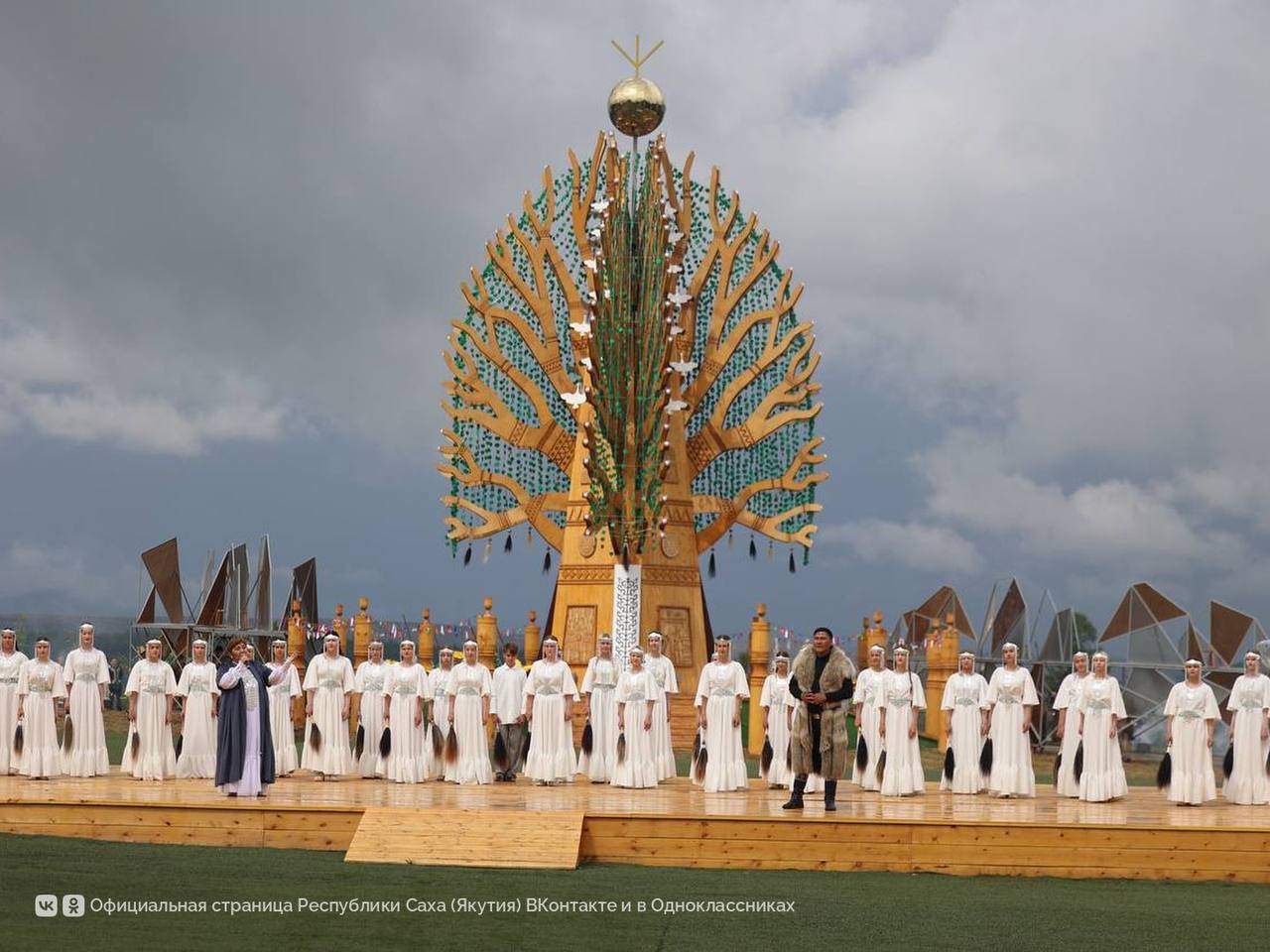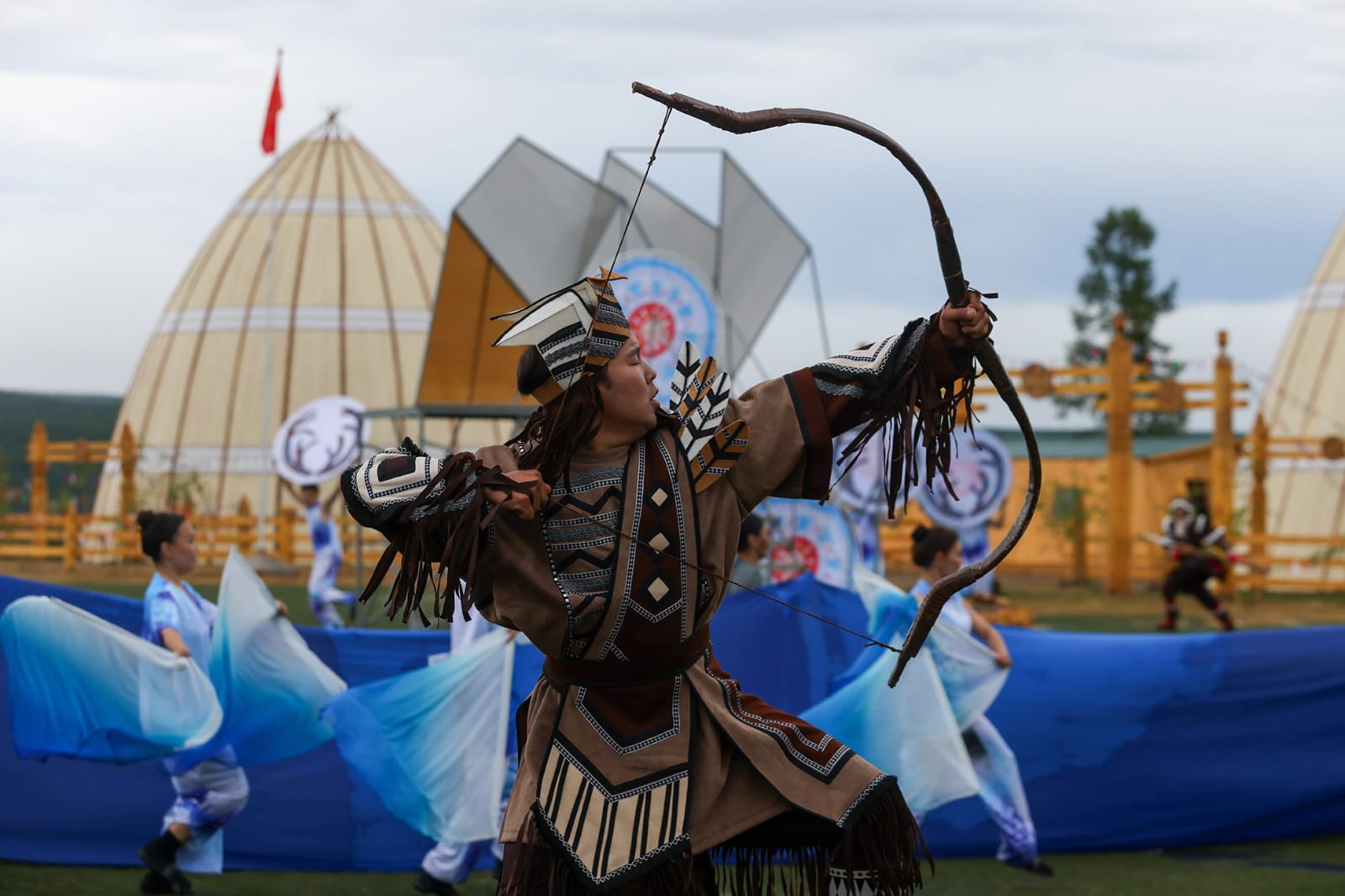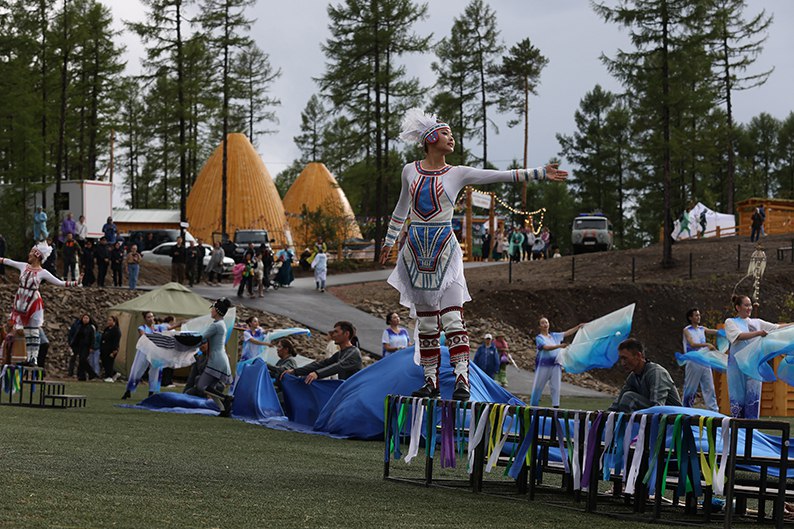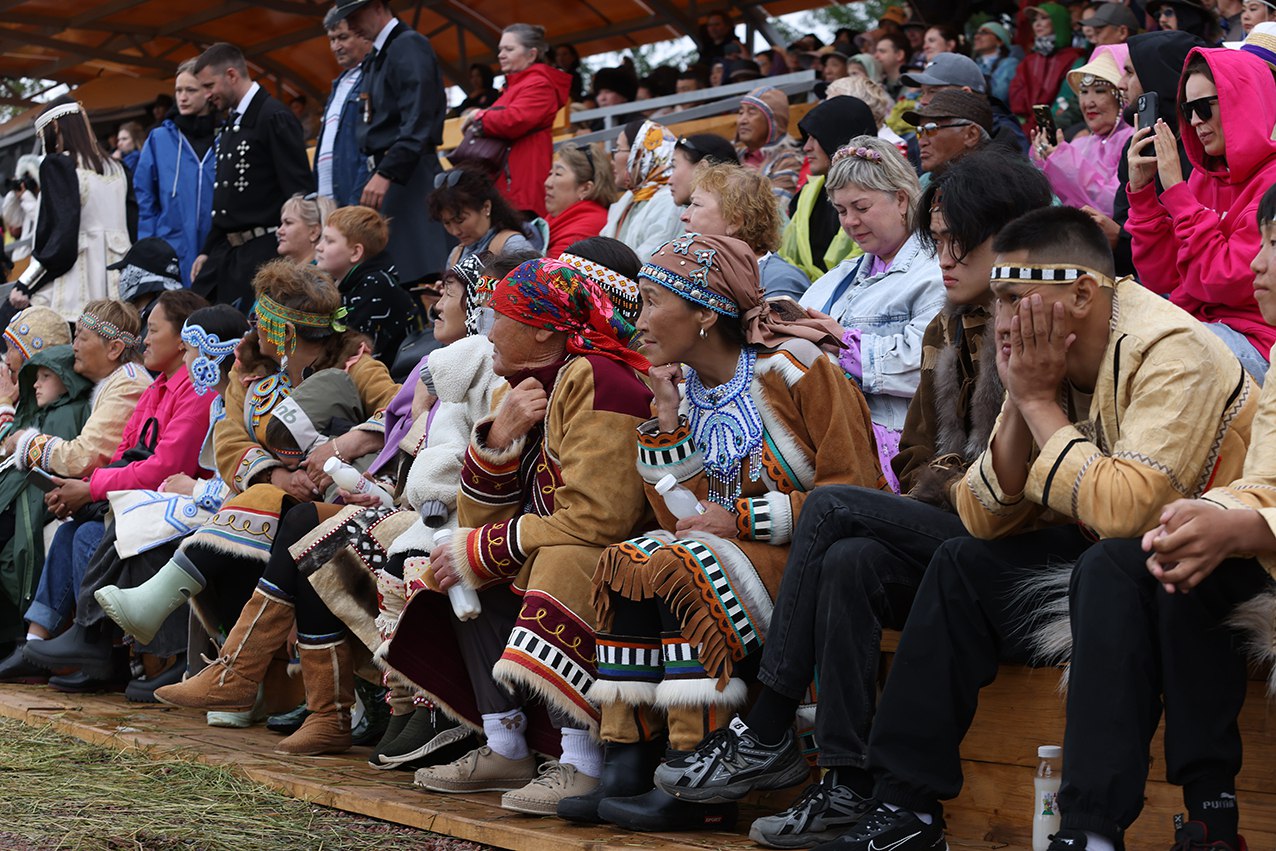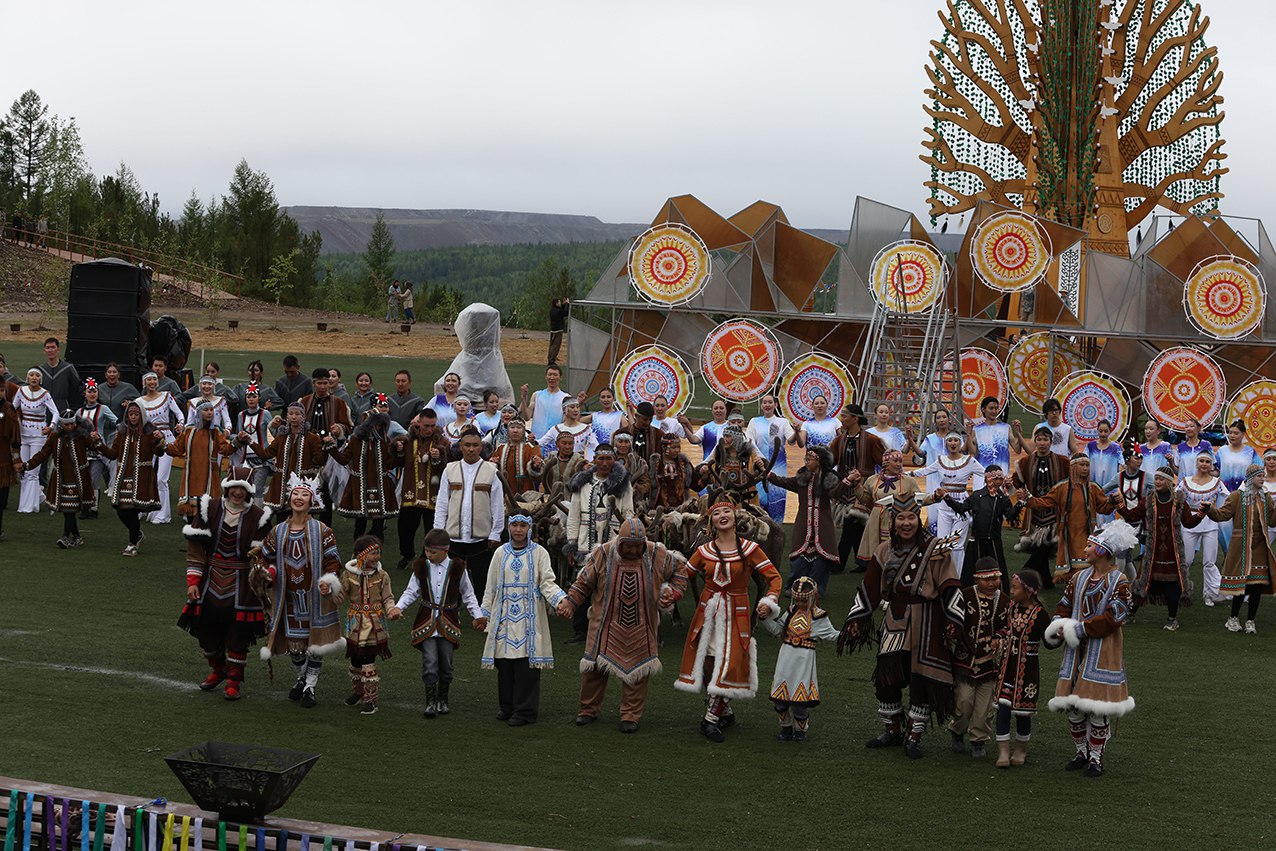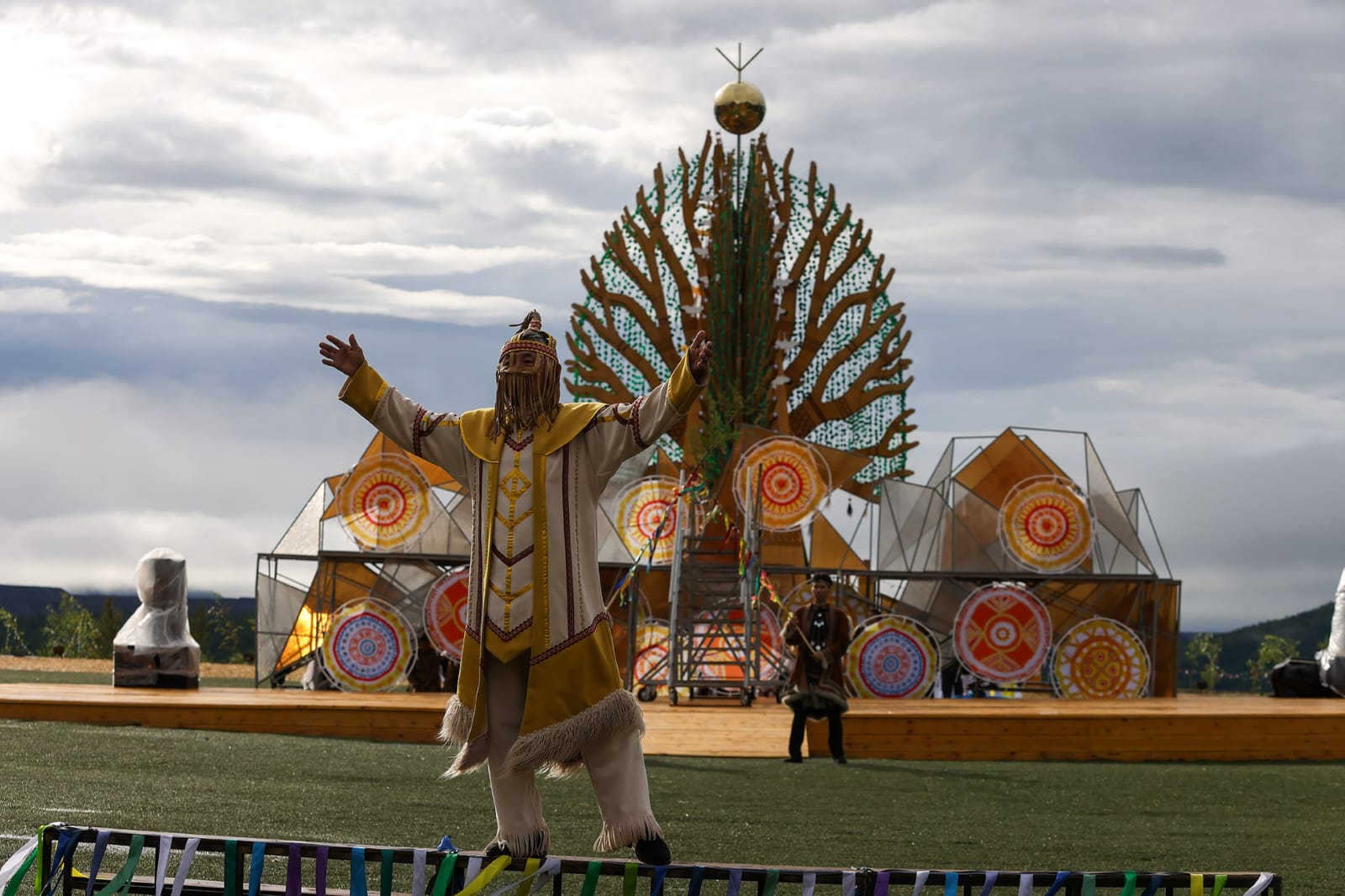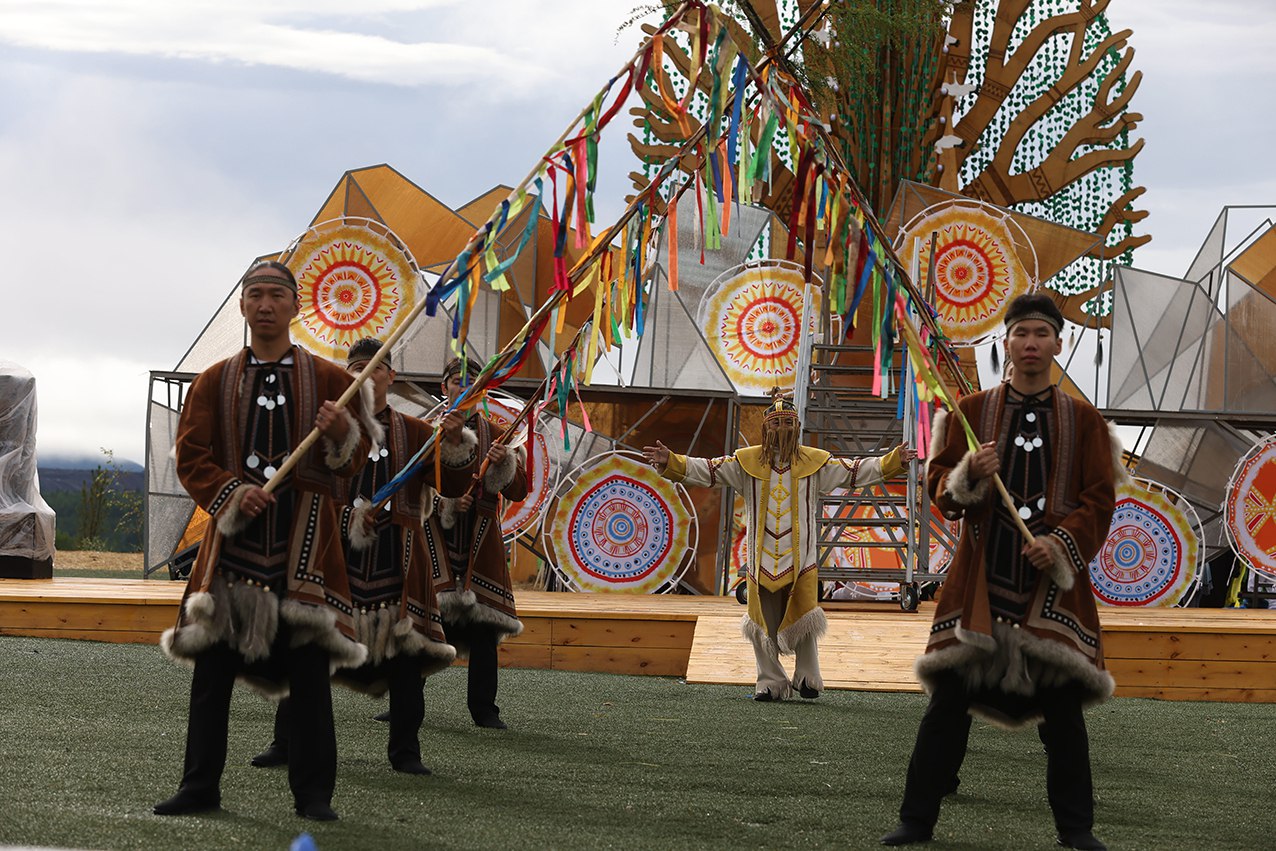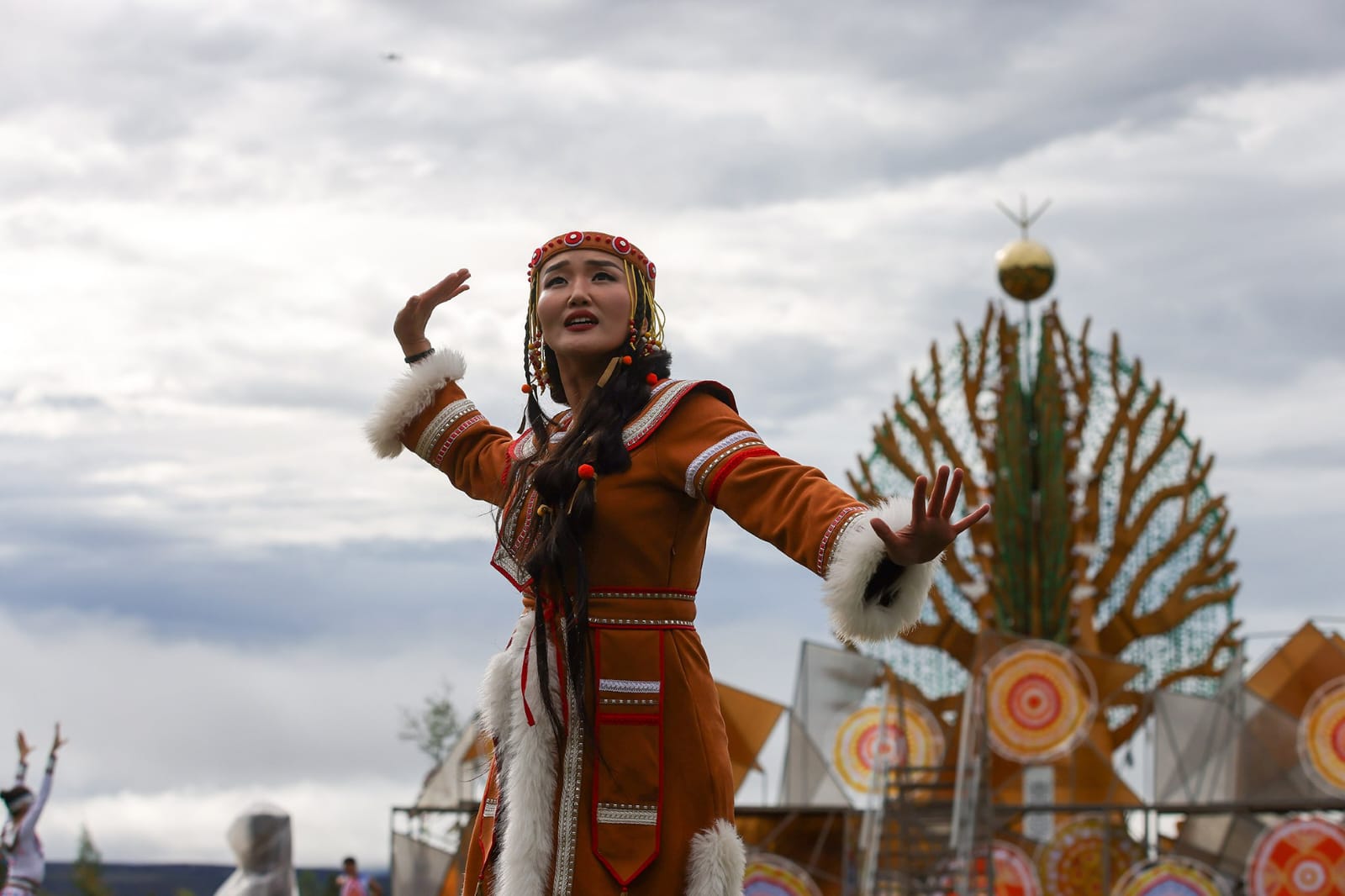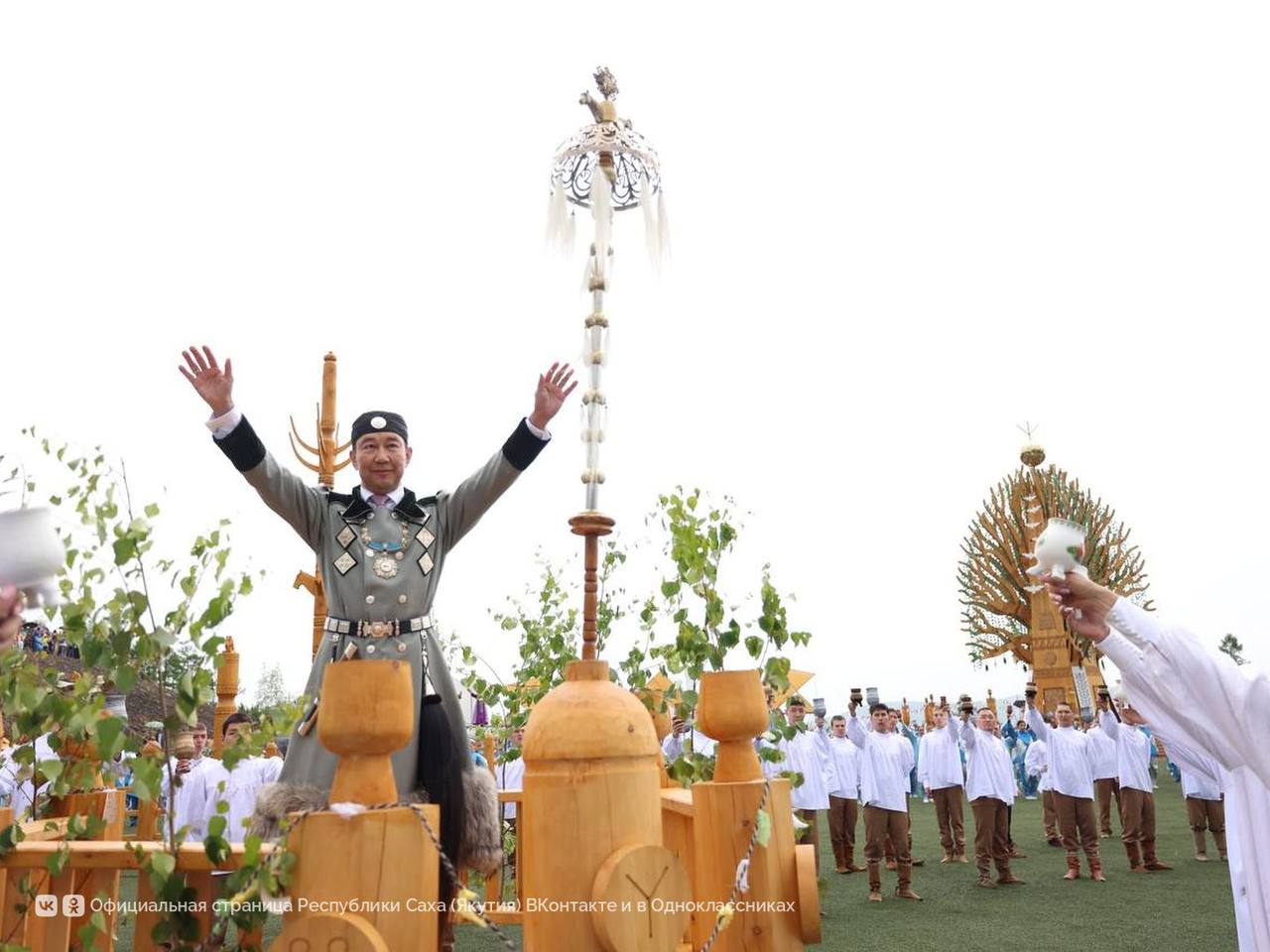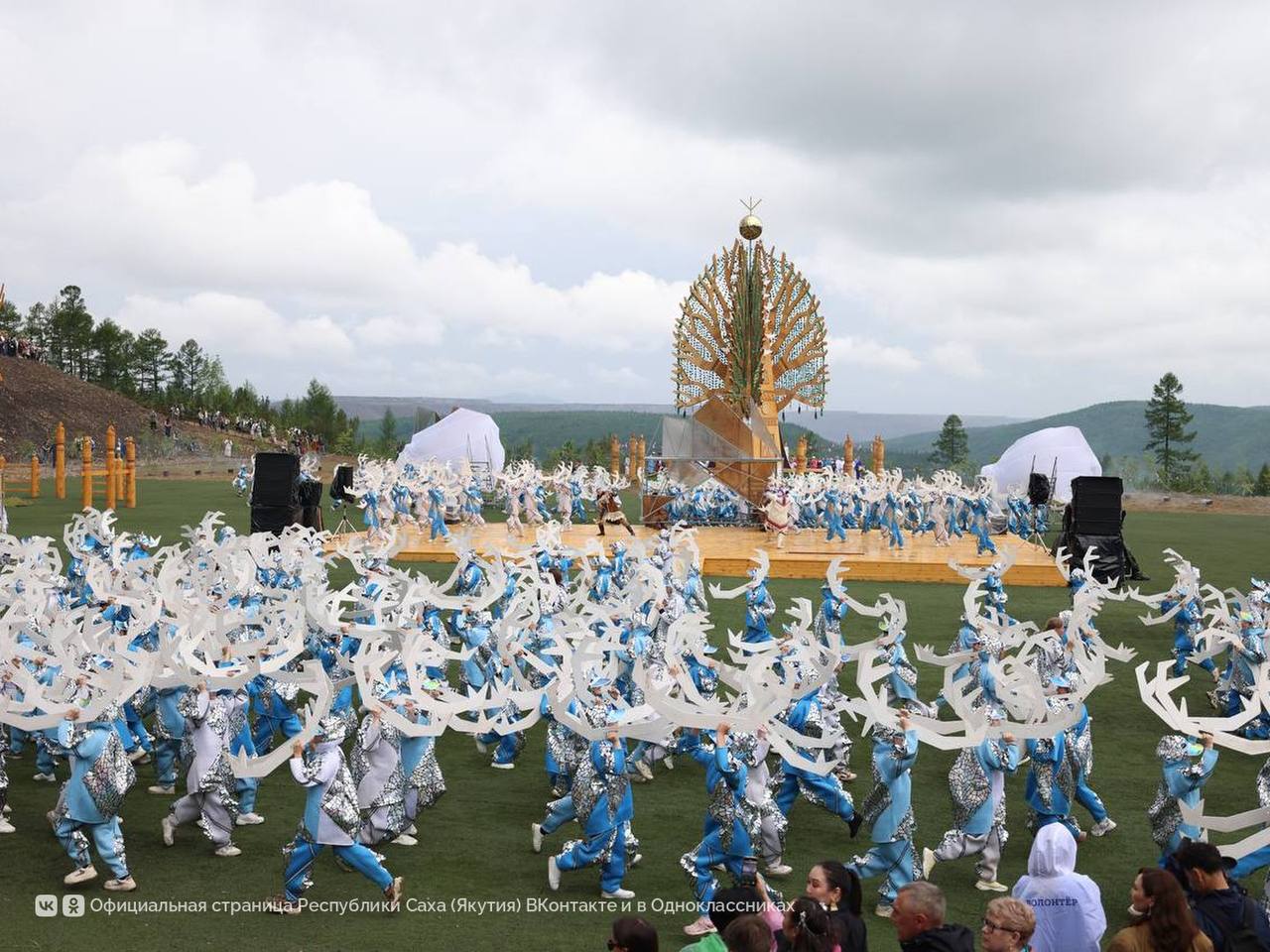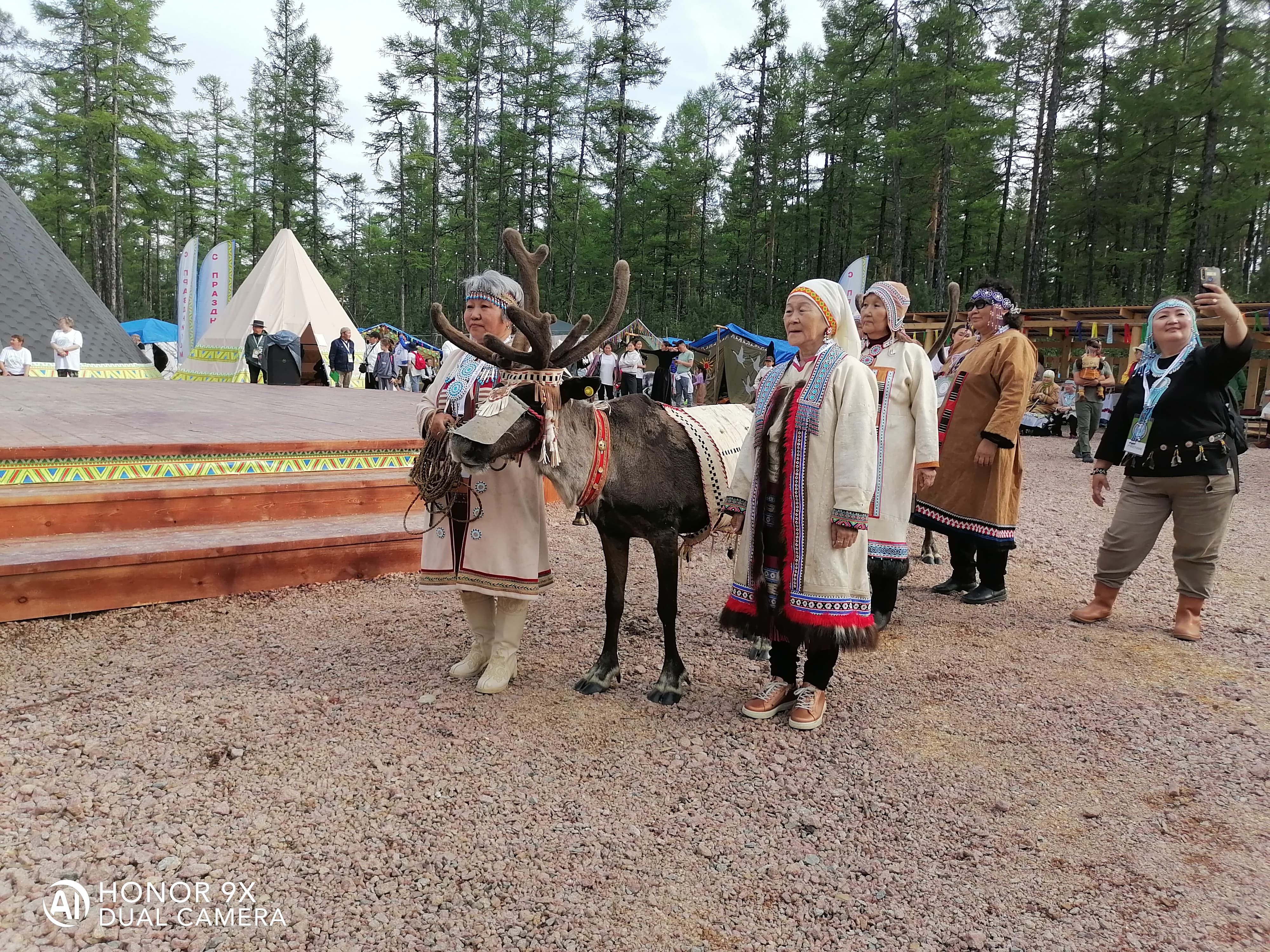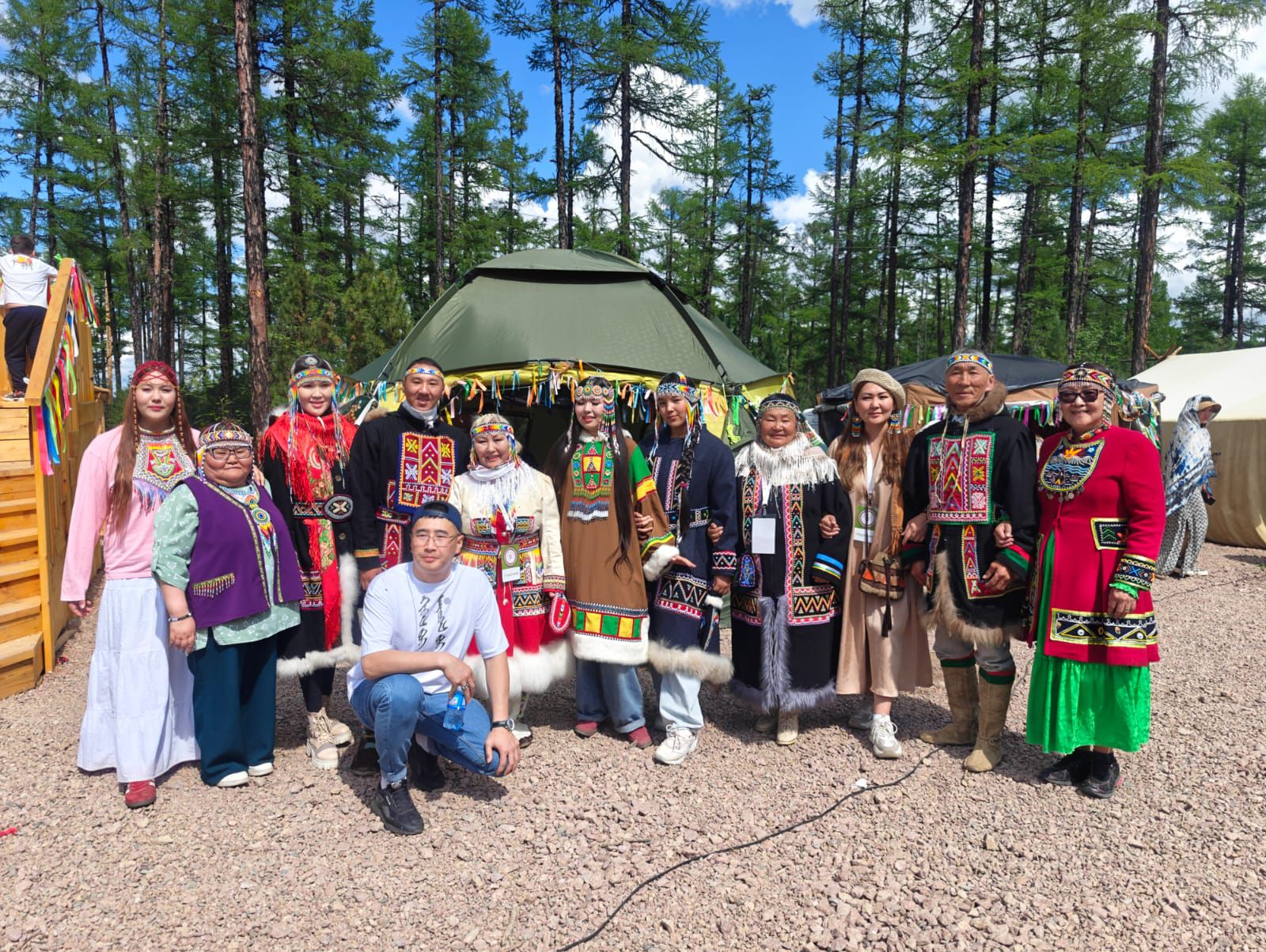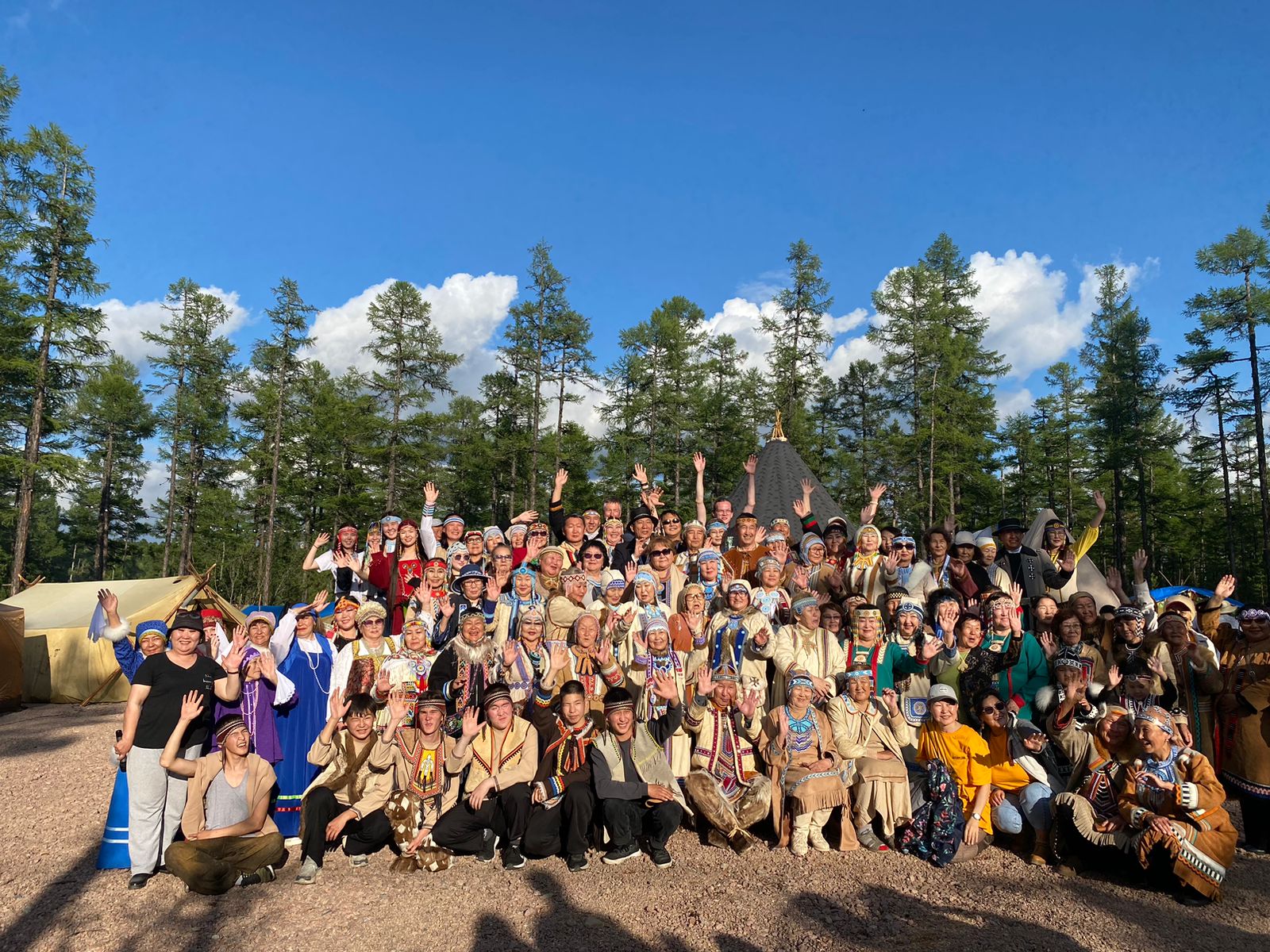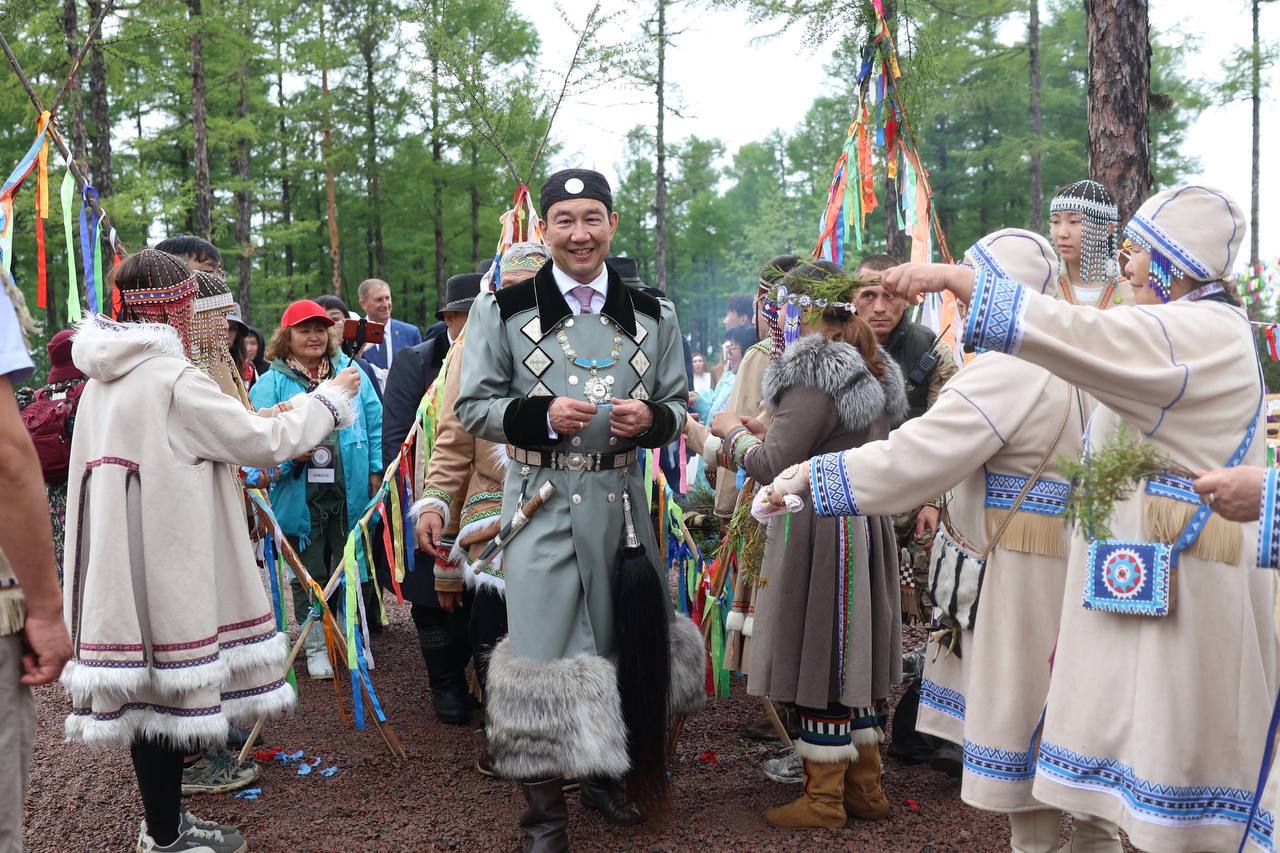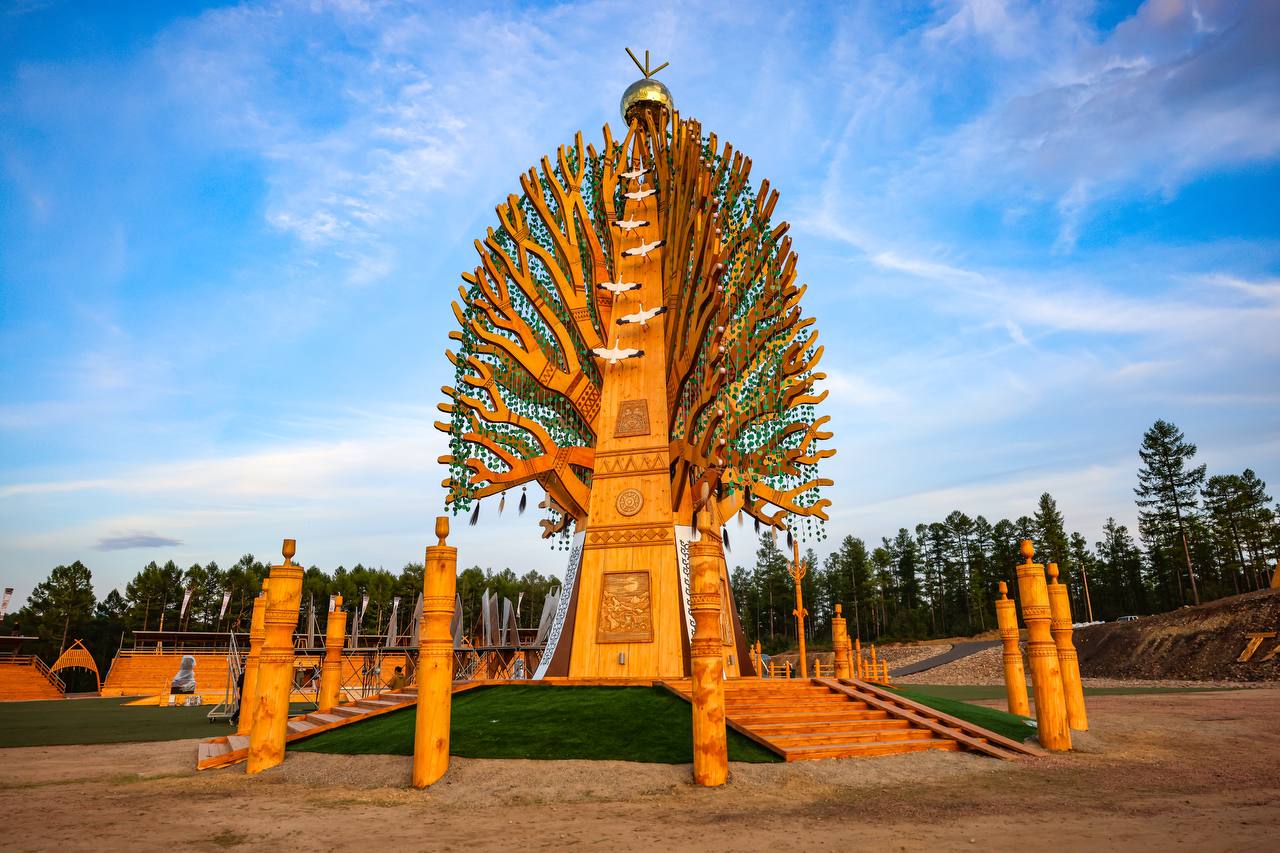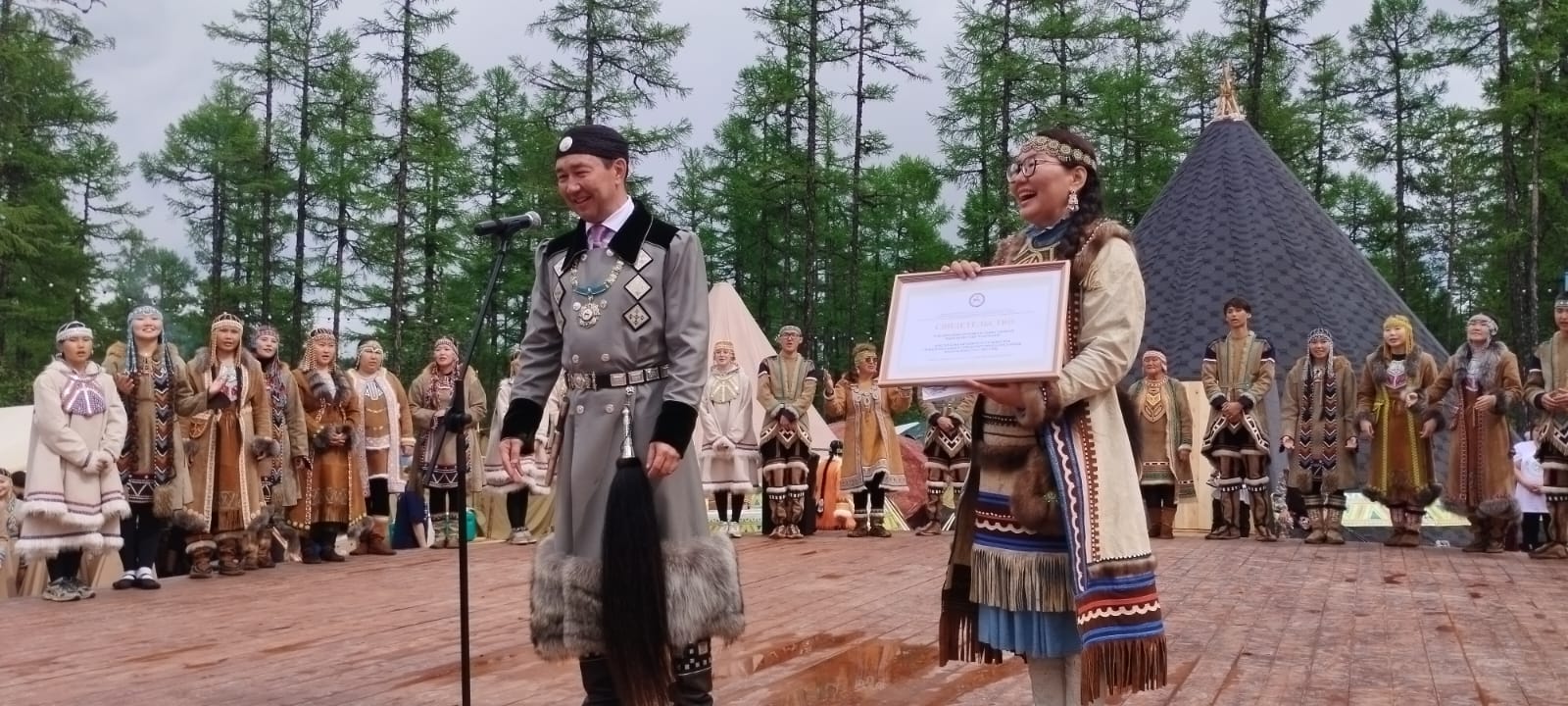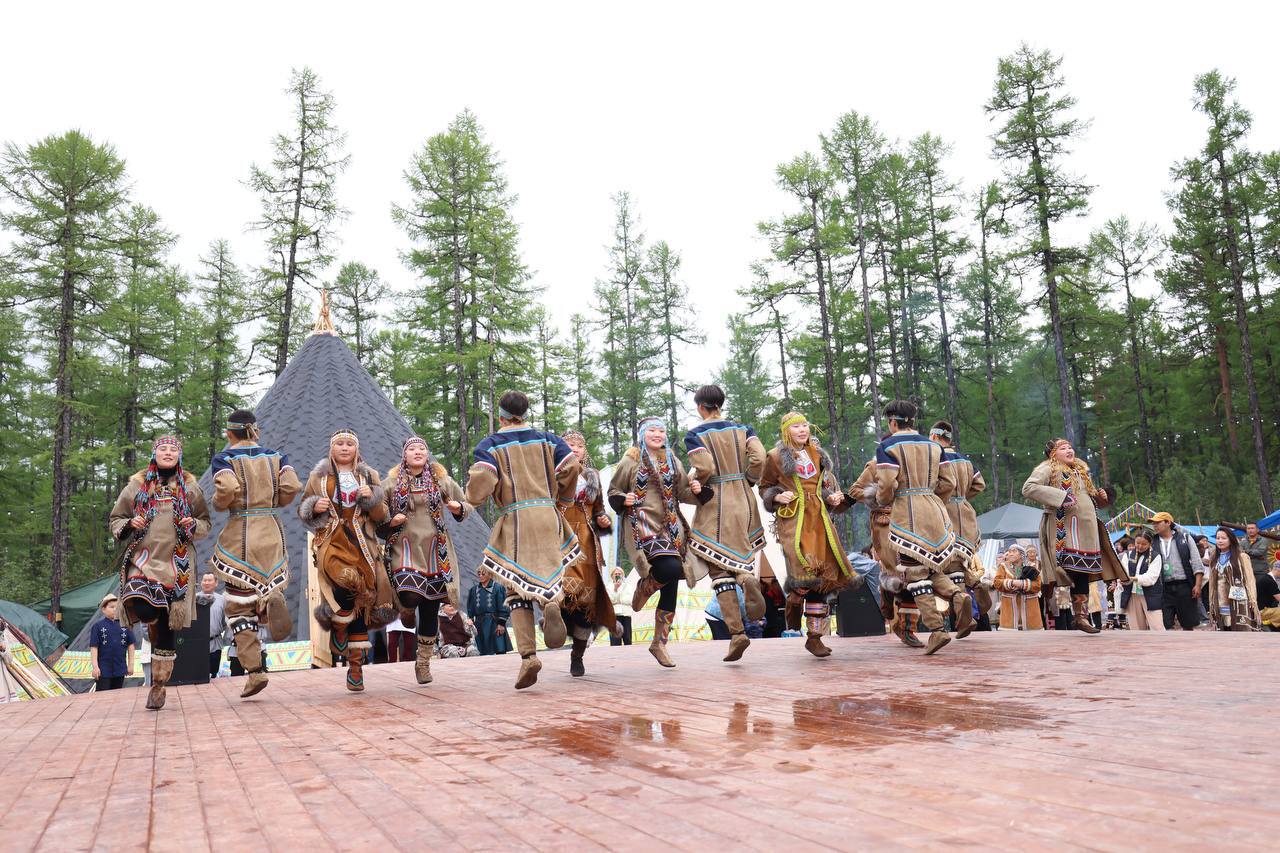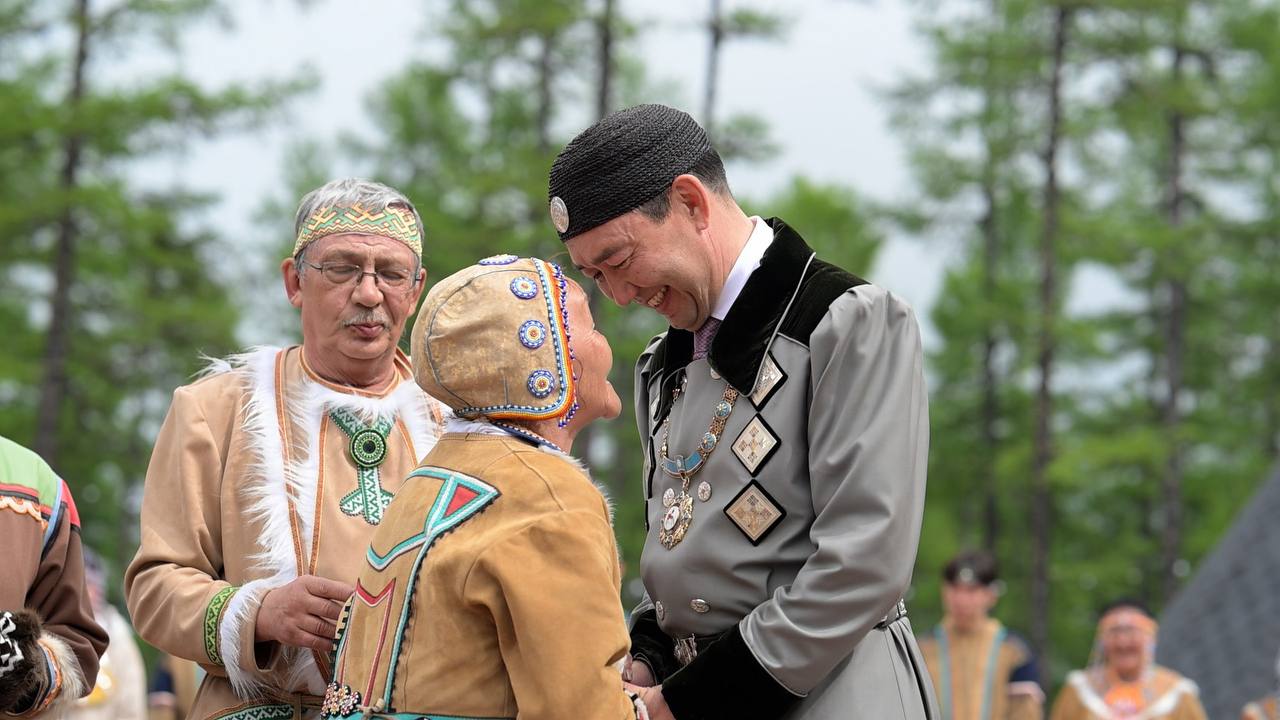During the vibrant Ysyakh Olonkho festival in Neryungri, Sakha Republic, the Indigenous Peoples of Northern Yakutia captured the hearts of visitors with a moving showcase of cultural richness, ancestral wisdom, and spiritual expression.
The festival’s Indigenous pavilion became a center of attraction, where representatives of the Evenks, Evens, Yukaghirs, Dolgans, Chukchis, and Russian Arctic Old-Settlers welcomed guests into their world through storytelling, traditional dress, music, and dance.
Throughout the event, performances rooted in centuries-old traditions brought warmth and meaning to the festival grounds. Concerts, thematic contests, and exhibitions allowed guests to experience the unique atmosphere of Yakutia’s northern peoples, a living heritage that continues to thrive despite harsh climates and remote geographies.
A highlight of the festival was the official announcement by Aisen Nikolaev, Head of the Republic of Sakha (Yakutia), that the "Manchora" national dance of the Southern Yakutia Evenks has been added to the official list of ethnocultural heritage of the peoples of Yakutia. This recognition reinforces the importance of preserving cultural practices and passing them on to future generations.
What Is Ysyakh Olonkho?
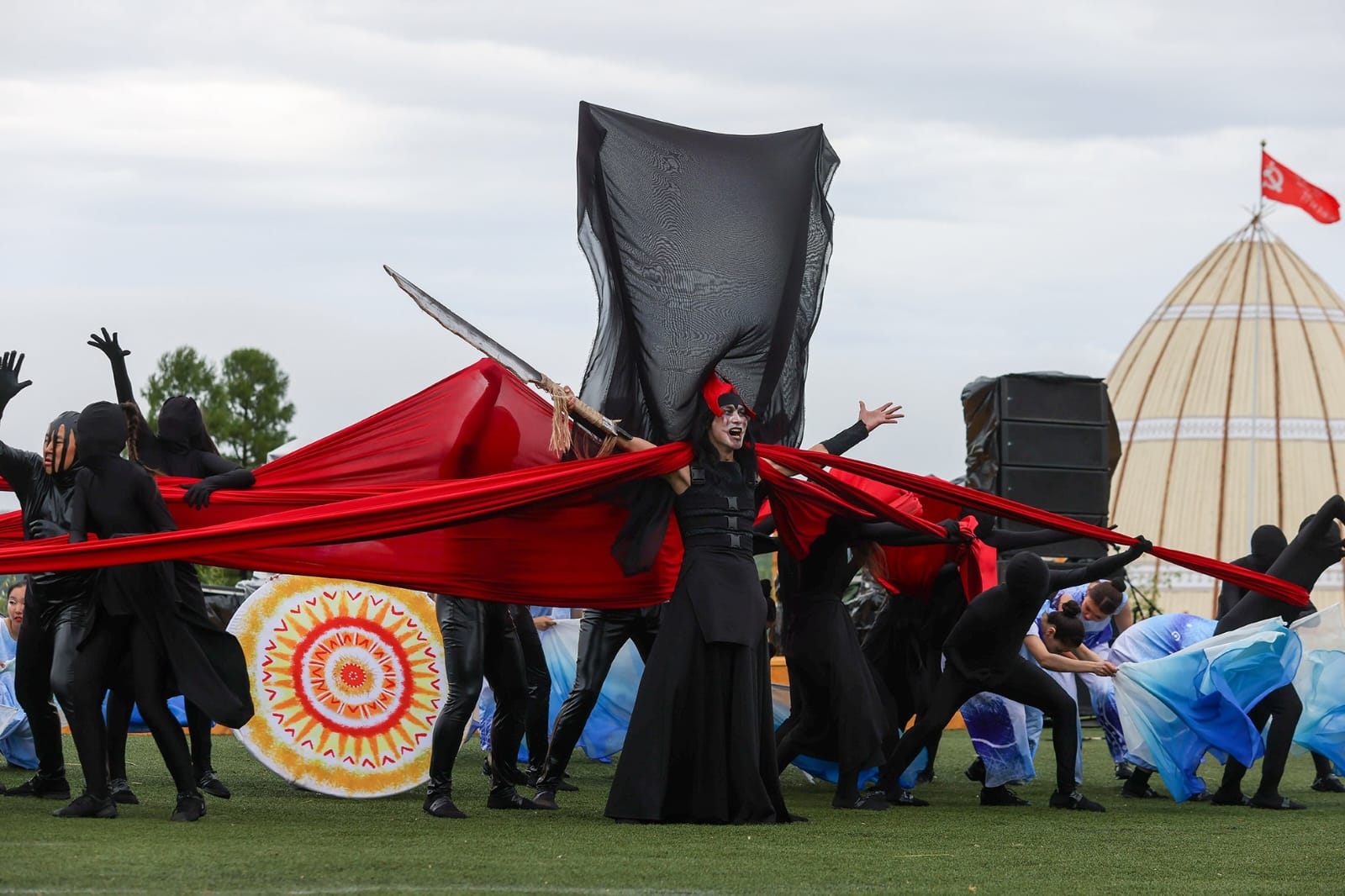 More than a festival, Ysyakh Olonkho is a sacred celebration rooted in Yakut mythology, marking the rebirth of nature and the beginning of the new solar cycle. Celebrated around the summer solstice, Ysyakh derives from a word meaning “abundance,” and traditionally falls on June 21, although dates may vary by region. In Neryungri and many other districts, the festival was held this year on June 20–21, while in the capital, Yakutsk, the celebration was held the following weekend, on June 28-29.
More than a festival, Ysyakh Olonkho is a sacred celebration rooted in Yakut mythology, marking the rebirth of nature and the beginning of the new solar cycle. Celebrated around the summer solstice, Ysyakh derives from a word meaning “abundance,” and traditionally falls on June 21, although dates may vary by region. In Neryungri and many other districts, the festival was held this year on June 20–21, while in the capital, Yakutsk, the celebration was held the following weekend, on June 28-29.
The folklore foundation of the celebration lies in the Olonkho epic, the oral heritage of the Sakha people. According to this cosmology, the world is divided into three realms: the Upper World of the gods, the Middle World of humans, and the Lower World inhabited by dark spirits (Abaasi). At the center of all creation stands the Aal Luuk Mas, the sacred tree of life, home to the earth goddess Aan Alakhchyn Khotun, the helper of heroes and the protector of people.
During Ysyakh, the benevolent Aiyy gods are believed to descend to earth along sunlit paths, arriving on flaming horses to bless people with energy and harmony. This spiritual dimension infuses the festival with a profound sense of renewal and connection between nature, humanity, and the divine.
The tradition is said to originate with the culture hero Ellei Bootur, who introduced cattle breeding to the Yakuts and created the first Ysyakh celebration. He set up birch poles in his yard, stretched horsehair ropes between them, and hosted relatives and neighbors for a days-long celebration.
It was during this gathering that koumiss, a fermented mare’s milk drink, was first shared, a drink that remains central to the ritual offerings and hospitality of Ysyakh today.
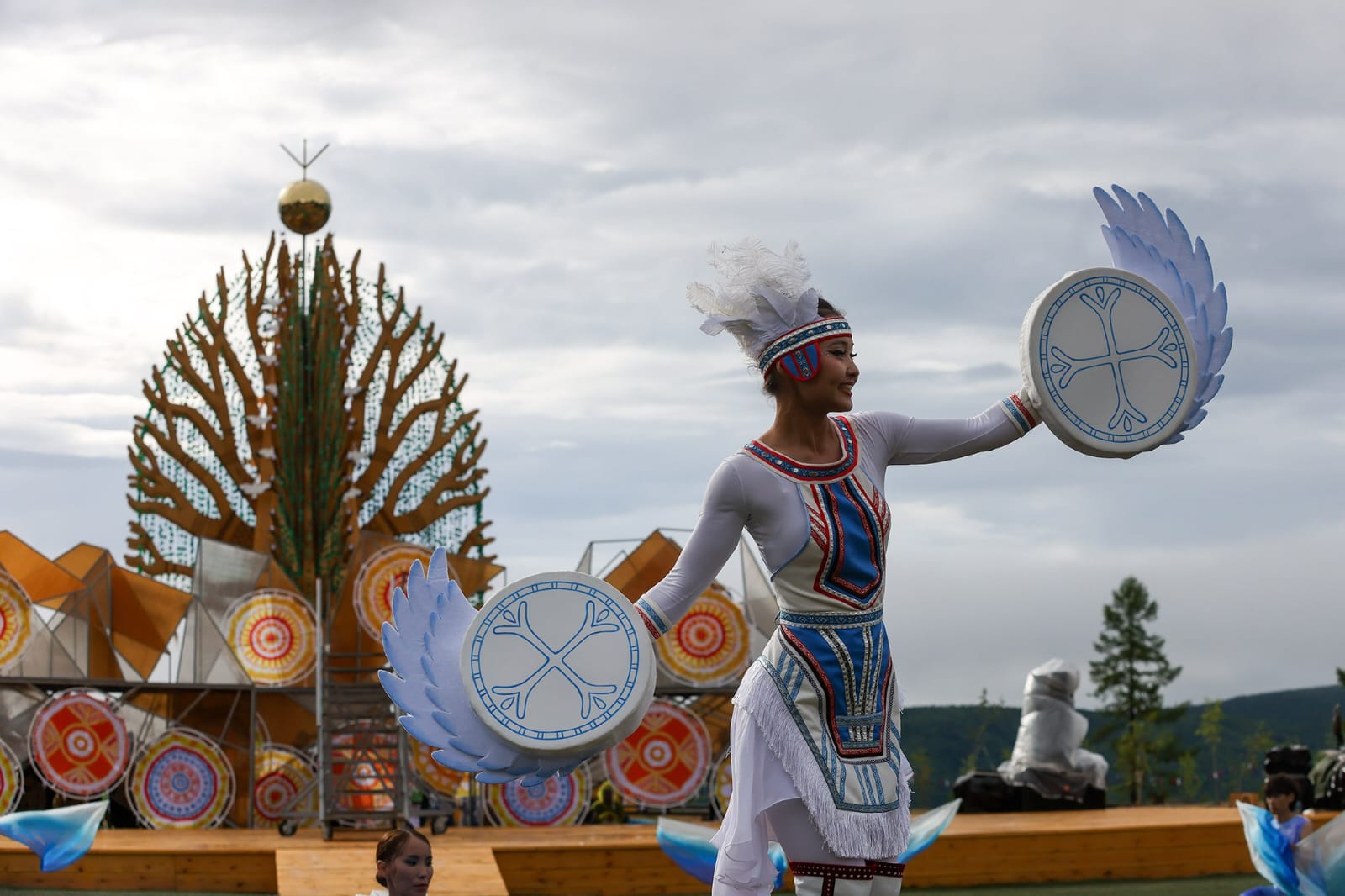 Preserving the Past, Uniting the Present
Preserving the Past, Uniting the Present
The Ysyakh Olonkho festival is more than a commemoration of ancient beliefs; it is a living expression of identity and resilience. It brings together diverse communities in a shared cultural space, bridging generations and honoring the deep-rooted values of respect for nature, community, and heritage.
In a time of rapid change, festivals like Ysyakh Olonkho serve as powerful reminders of the importance of cultural continuity. Through dance, storytelling, music, and ritual, the peoples of Yakutia celebrate not only their past, but also their future; one where traditions are not only preserved, but lived.
Source:Indigenous peoples of the North "ILKEN", IZ

